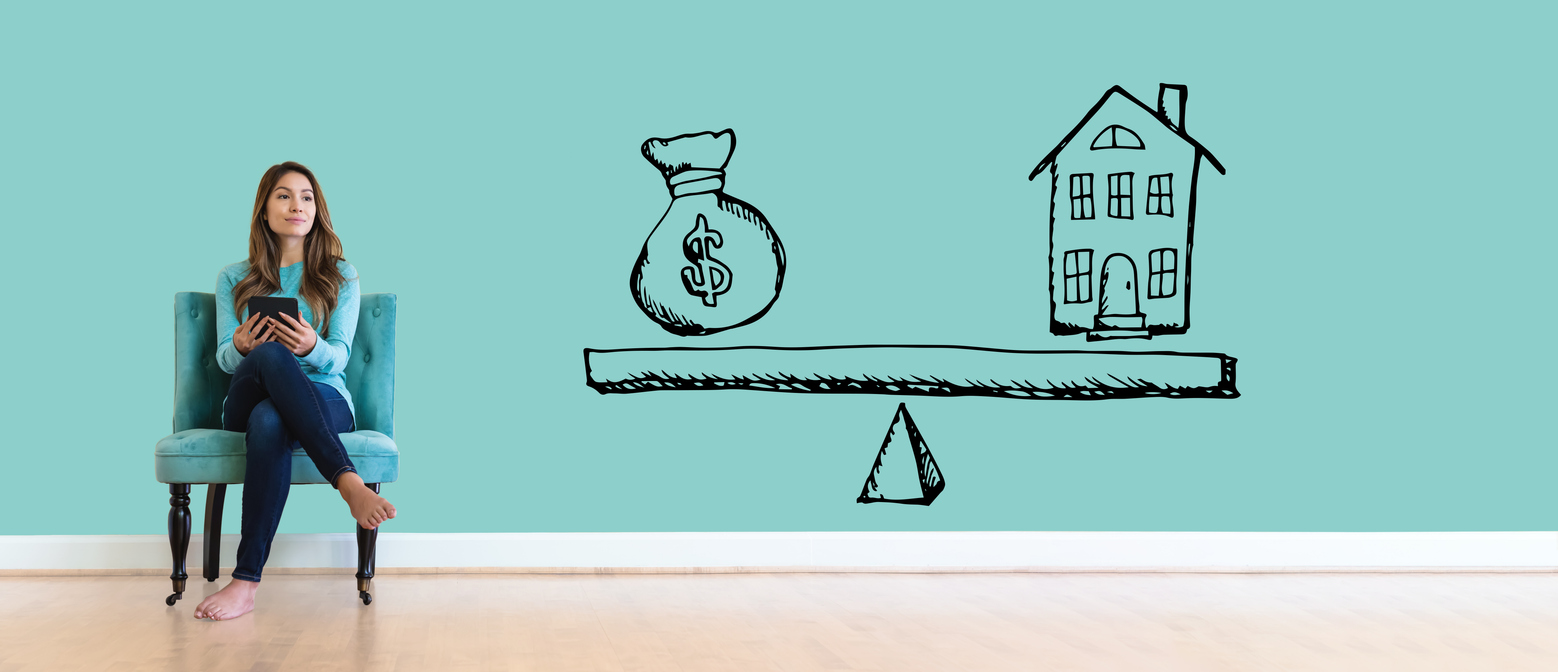If you are an older homeowner, you may have heard of reverse mortgages. Perhaps you’ve seen Henry Winkler or Tom Selleck selling reverse mortgages on TV. Reverse mortgages can be a useful source of income for someone who owns their home outright.
After all, the typical Social Security check is only about $1,700 per month, so many people need extra income in their older years. A reverse mortgage could be a way to get the income you need when you are 62 or older. However, you should understand the pros and cons of reverse mortgages before getting one.
What Is a Reverse Mortgage?
A reverse mortgage, also known as a Home Equity Conversion Mortgage, is a type of home loan only for people 62 and older. The CFPB discusses the benefits and rewards of the home equity conversion. A reverse mortgage has some similarities to a regular mortgage in that you may be able to borrow money with your home as collateral.
However, with a reverse mortgage, you don’t make mortgage payments. You receive money either in a lump sum or in monthly installments to help you with your living expenses or other costs.
The loan is paid back when you no longer live in the home, whether it is because of death, moving to a nursing home, or simply selling the home.
You have to pay property taxes and homeowner’s insurance, live there as your primary residence, and keep the house in decent condition.
The reverse mortgage is paid back when you or your heirs pay back the loan. This is usually accomplished by selling the property. However, some people may be able to pay the mortgage lender back and keep the home.
Reverse Mortgage Pros
There are several popular advantages to reverse mortgages:
- More income in retirement: Many seniors do not have as much income when they retire. This can make it more difficult to afford living expenses and medical costs, among other things. A reverse mortgage can provide you with a regular income stream during retirement without using your savings. You also don’t have to make monthly payments.
- You don’t need to move: Many older Americans want to stay in the home where they raised their children. Moving is also a hassle and expense. A reverse mortgage allows you to stay in your home longer. A reverse mortgage has expenses to consider, but getting one could be less expensive than renting or buying another home.
- No taxes: The money from your reverse mortgage is tax free. The IRS says that the money is loan proceeds, not income, so there are no taxes at the federal level. There could be tax consequences at the state or local levels, so talk to your CPA for more information.
- You are protected: A reverse mortgage balance gets larger over time, so you could eventually have borrowed more than the home’s value. But a reverse mortgage is a type of non-recourse financing, so the debt that has to be repaired can never be more than what the home is worth.
- Your family has options: while you can pay off the reverse mortgage at any time, it usually doesn’t happen until you move, sell the property, or pass away. This leaves your family with several options. They could sell the home to pay back the debt; repay the mortgage out of pocket; keep the home and refinance, or allow the lender to take the home.
- Possible rising equity: Homes have been rising significantly in value in recent years in many parts of the US. You could have a bigger opportunity to borrow equity in a reverse mortgage than several years ago.
Reverse Mortgage Cons
Reverse mortgages have many benefits, but it’s a huge decision, so you should grasp the downsides:
- There are fees: You will need to pay an origination fee of thousands; mortgage insurance premiums; closing costs, and a monthly service fee. You can roll most expenses into the loan, but it will add thousands to what you owe.
- No interest deduction: You may have liked the mortgage interest deduction when you paid your mortgage. But you can’t deduct the interest on a reverse mortgage. You only can take that deduction when the loan is paid off.
- You still have other expenses: You still need to pay for property taxes and homeowner’s insurance. If you don’t pay for these expenses, you could lose your home.
- Family could run into problems: When you no longer live in the house, the reverse mortgage needs to be repaid or the home goes to the lender. This could happen because you die but also if you have to go to a nursing home. This could cause problems if there are other family living in the property. The amount of the reverse mortgage to repay to keep the home could be too large for your heirs.
Who Are Good Candidates For Reverse Mortgages?
The decision to get a reverse mortgage is a complex one, so who is often an ideal candidate?
- You plan to stay in the home for many years. You will have to pay closing costs for the reverse mortgage, so you definitely want to stay in the home long enough to a least to break even. If you are at least 62 and plan to stay in the home until you die, getting a reverse mortgage may be wise.
- You need cash to manage your expenses. If you are struggling with insufficient income, you may want to get a reverse mortgage to pay your bills. This could be especially true for older Americans with health problems and high medical bills.
- Home is rising in value. If you live in a place where home values are rising, the home could be worth more by the time the loan has to be repaid.
Who Should Not Get a Reverse Mortgage?
If you are in any of the following situations, you may not want to get a reverse mortgage:
- You want to move soon. Getting a reverse mortgage has thousands in upfront costs. If you want to move in the next few years, you should not get a reverse mortgage.
- You may need to move because of your health. You have to live in the house to qualify for a reverse mortgage. If you need to move to a nursing home, the loan will have to be paid back. You should be in good health if you are considering a reverse mortgage.
- You can’t cover other home expenses. If you have difficulty paying for homeowner’s insurance and property taxes, you should not get a reverse mortgage.
Takeaway on Reverse Home Mortgages
Reverse mortgages do not always have the best reputation, but there are legitimate uses for these loans. If you are at least 62 and want extra income and plan to stay in the home for a long time, a reverse mortgage can be a good move. However, you should always be cautious about putting your home and equity at risk.
You may want to talk to a qualified financial planner about whether a reverse mortgage is a good fit for your financial goals. If you want to look at reverse mortgage options, our loan experts are here to provide the best options!




